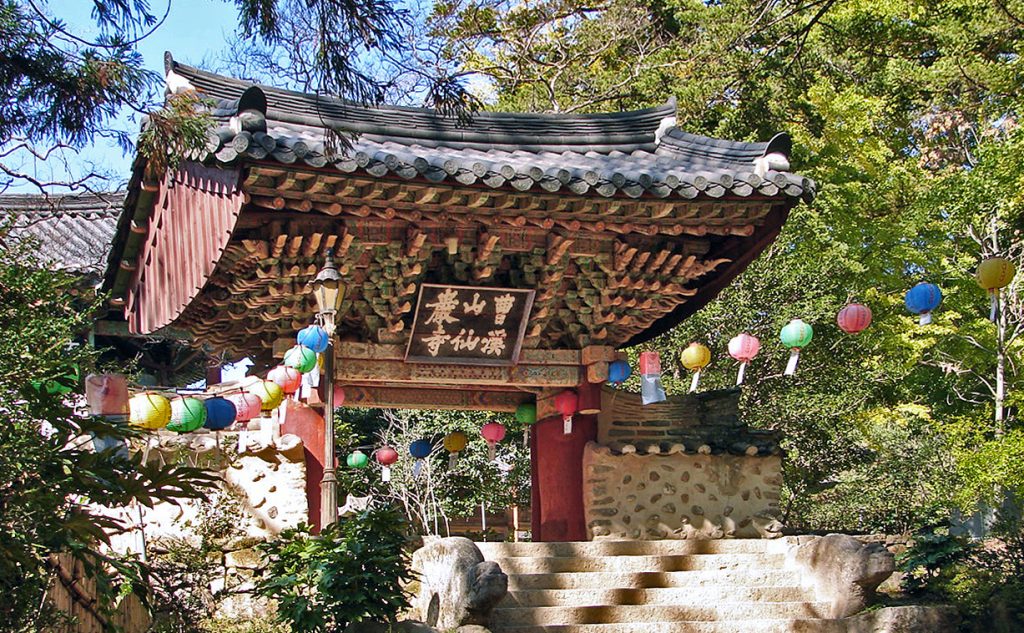Nothing is permanent, so everything is precious. Here’s a selection of some happenings—fleeting or otherwise—in the Buddhist world this week.
Meditation Helped Thai Boys Trapped in Cave
The 12 young boys and their soccer coach trapped for days deep in a flooded cave in northern Thailand turned to meditation to remain calm while awaiting their rescue earlier this week. The boys’ coach, Ekapol Chanthawong, 25, is a former Buddhist monk. He led the boys in meditation and readied them for their perilous escape by meditating with each boy for an hour before professional cave divers brought them out through dangerous narrow underwater passageways, one of the divers told Vox. Professor Leah Weiss of Stanford University told CNBC that “meditation is actually a very practical response” to the concerns the trapped boys were facing: insufficient food and oxygen, emotional distress, and the need to make decisions and solve problems. Chanthawong spent 10 years at a monastery in Mae Sai, Thailand, before disrobing to care for his ailing grandmother. His former abbot described him as “a responsible young man who meditates regularly.” Meditation seems to have struck a chord with the boys; all 12 of them reportedly want to ordain as temporary novice monks once they are released from the hospital.
Mainstream News Turns Attention to Sakyong Sexual Assault Allegations
The allegations of sexual assault against Shambhala leader Sakyong Mipham Rinpoche and upheaval in Shambhala have rocked the Western Buddhist world. But this week the story went mainstream. Following reports in the Buddhist and local publications, the New York Times reported in a front-page story on Wednesday “The ‘King’ of Shambhala Buddhism Is Undone by Abuse Report,” and the Guardian reported “Buddhist group leader steps down over sexual assault claims.” The Guardian also reported on allegations against other Shambhala teachers in March.
Dalai Lama Offers Sympathy to Victims of Devastating Flood in Japan
Floods caused by torrential rains have claimed 204 lives in western Japan, with 28 people still missing and 7,000 sheltering in evacuation centers, according to Japanese officials. On Monday, His Holiness the 14th Dalai Lama sent a message to Japanese Prime Minister Shinzo Abe offering sympathy for victims of this “unprecedented and extensive” flooding, writing that he “feel[s] a great sympathy for the families of people who have died and those who have lost their homes” and is praying for the success of rescue operations. The Dalai Lama has visited the most heavily affected areas in Hiroshima and Okayama prefectures several times, most recently in 2010 for a summit of Nobel Peace Laureates. The Dalai Lama isn’t the only religious leader to reach out to Japan; Pope Francis is also praying for the victims and sent a message to the people of Japan saying he is “deeply saddened” by the loss of life. The flooding is one of Japan’s deadliest natural disasters since the devastating 2011 earthquake and tsunami.
Korean Buddhist temples added to UNESCO World Heritage List
UNESCO has added a group of seven mountain Buddhist temples in South Korea to the World Heritage List, a recent press release announced. Known as Sansa, or “mountain monasteries,” the temples—Tongdosa, Buseoksa, Bongjeongsa, Beopjusa, Magoksa, Seonamsa, and Daeheungsa—have operated as centers for the practice of Mahayana Buddhism since they were built between the 7th–9th centuries across the southern region of the country. The temples demonstrate the unique architecture of the Korean Buddhist mountain monasteries, which feature four buildings gathered around a central madang, or open courtyard, according to documents South Korea provided to UNESCO. The temples “offer a distinctively Korean instantiation of Buddhist monastic culture,” UNESCO wrote in their summary. Other new additions to the World Heritage List included 19th-century Victorian Gothic and Art Deco buildings in Mumbai, archaeological sites in Iran, and hidden medieval Christian sites in Japan’s Nagasaki region.
You can learn more about Korean Buddhism in Tricycle’s recent online course, Korean Buddhist Cooking.
Congrats to Joanne Cacciatore
Tricycle contributor Joanne Cacciatore’s book Bearing the Unbearable: Love, Loss, and the Heartbreaking Path of Grief (Wisdom Publications, 2017) has won the Foreword INDIES Book of the Year Award. The award from Foreword Reviews acknowledges excellence in books published by small, independent presses that “don’t have major PR machine or corporate budgets,” according to Matt Sutherland, Foreword Reviews’ editor-in-chief. Daniel Aitken of Wisdom Publications said in a press release that he is “grateful” and is “looking forward to continuing to help this book reach the audience that will benefit most from its compassionate wisdom.” Read an excerpt of the book here.
Thank you for subscribing to Tricycle! As a nonprofit, we depend on readers like you to keep Buddhist teachings and practices widely available.
